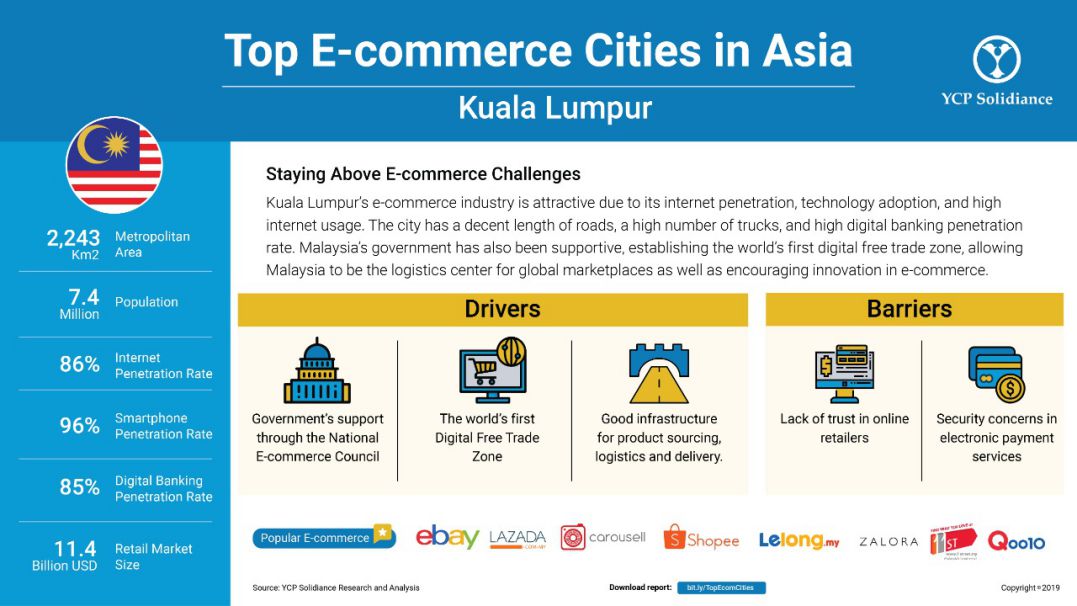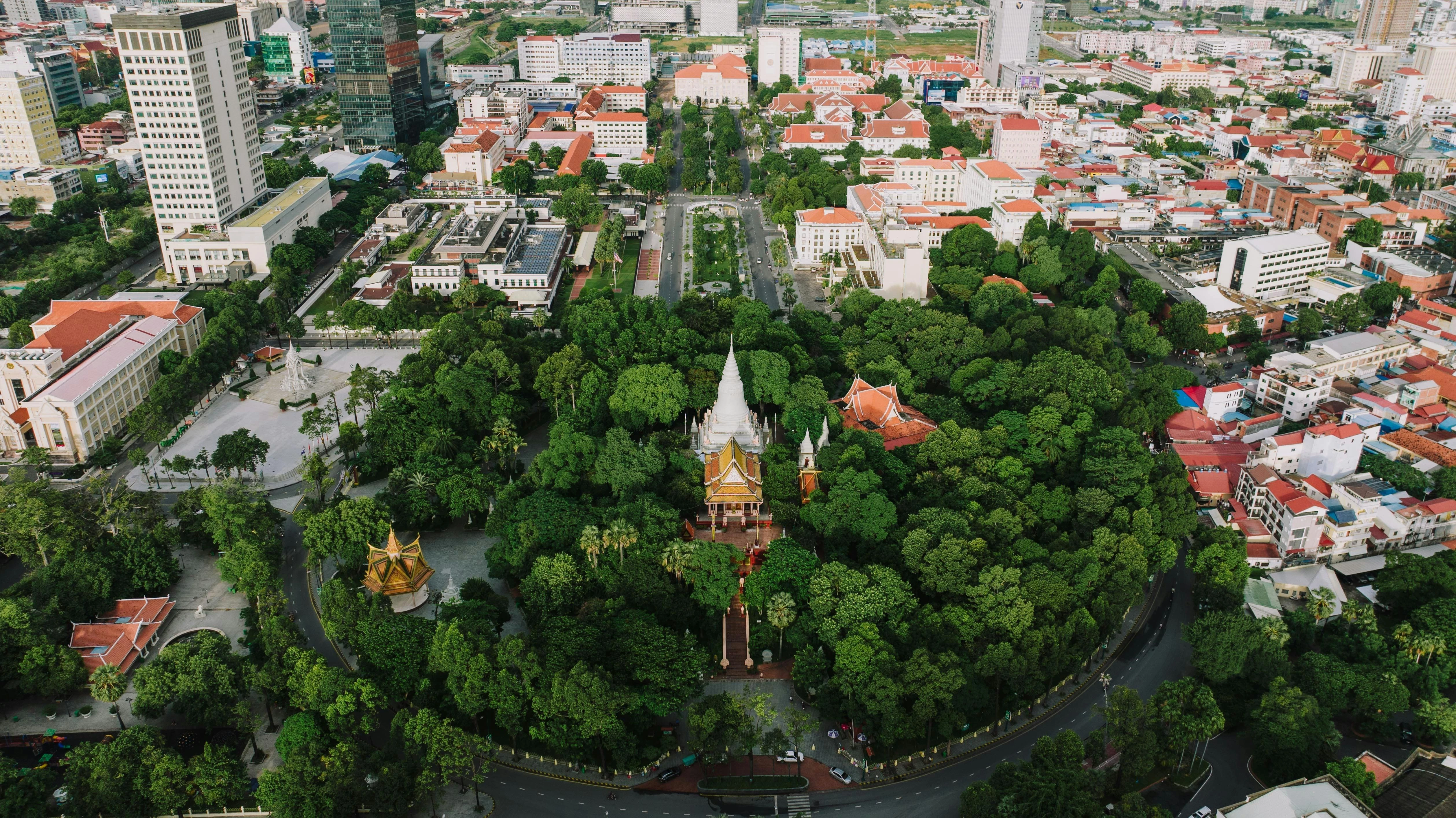Kuala Lumpur is one of Asia's top e-commerce cities, along with other cities, such as Jakarta, Bangkok, Beijing, and many more, according to our latest report, Top E-commerce Cities in Asia. The significance of e-commerce landscape in Asia as well as how it has grown and quickly adapted to global trend are featured in the report. The term “e-commerce city” in the report is referred as an urban city with interconnected infrastructure which make up an e-commerce ecosystem that helps it thrive.
With its dynamic economy and developed infrastructures for digital technologies, Kuala Lumpur is an attractive market for e-commerce in Asia. The city's e-commerce is mainly driven by its infrastructure readiness and government initiative as world's first digital free trade zone, to position Kuala Lumpur as a regional hub for e-commerce logistic and gateway. As a renowned destination for expats to live in, the city is even transforming into a melting pot for the world. Going into e-commerce, Kuala Lumpur is ready for the e-commerce industry, considering its network infrastructure and government support for the industry.

In spite of being a key gateway in the region, lacks of trust in online retailers, particularly on product reliability and safety of payment mechanisms, can pose a challenge for the growth of Kuala Lumpur's e-commerce industry. Malaysia is also still struggling to cut the high logistic cost and a fairly low credit card penetration rate with USD 3.03 charged for every kilogram of goods delivered.
The report recorded an exponential growth of the world's e-commerce industry with a staggering USD 2.86 trillion E-tail revenues worldwide in 2018, expected to grow to USD 6 trillion in 2022. The market in Asia Pacific had a 35% economic growth rate in 2018 and retail e-commerce sales reaching USD 1.8 trillion, positioning the region as a clear leader in achieving one-fourth of global e-commerce share by 2023.
Furthermore, the recommended framework in the report, providing 5 key building blocks for startup ecosystem in reaching its full potential, can help Kuala Lumpur and other global cities to improve their e-commerce ecosystem, inclusive of stable and predictable regulatory environments; adequate talent; market readiness and robust infrastructure; funding to scale up the business, and global culture to empower innovative ideas.
Download the full report on Top E-commerce Cities in Asia.






